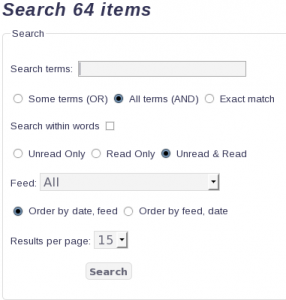Many times in my journeys of distribution hopping, I’ve run across rabid fans and communities [1]
I’ve written a guide for new users on how to understand the vitrol that rabid zealots spew in Linux communities [2]
Those problems are all very easy to see…but these articles deal with only the tangible problems in these areas. What are the reasons these problems exist? Is it because of one or two individuals? Is it mob mentality? Are people just waking up on the wrong side of the bed? I don’t think these reasons get down to the core of what the real problem is…the hidden problem…of zealots in the Linux community.
The Hidden Problem
The hidden problem is Narcissism…people think that what they have to say about a given subject makes the most sense and is 100% correct (or at least more correct than others’ POV) and it’s one that is hard for people to talk about…because anyone that writes or blogs has to be a little bit narcissistic. People don’t like talking about problems they’re guilty of. I know I am guilty of it…and I’m still going to talk about it.
With social networking riding a tidal wave right now, the era of the narcissist moves on, unhindered, on the interwebs. Subscribe to my twitter feed…what I have to says in 140 characters or less is a MUST READ! My facebook page will keep you updated on EVERY little thing I decide to post unless you edit me out of your news feed. Sites cater to the egocentric tendencies of anyone plugged in. So what happens when you get a bunch of narcissists together sharing a common goal? “My distribution is THE BEST out there and no other point of view matters!” That’s right, you get zealotry in the purest form.
This has slowly begun leaking into Linux communities during the past few years as Linux is tried out by more and more people and becomes more available to people who aren’t technologically advanced. Bottom line is, more people are trying Linux now than ever before. This makes the user pool larger and more diverse. Where there are more people though, there are more narcissists…and birds of a feather flock together.
Take narcissism with a twist of mob mentality and the powder keg in Linux communities is set to blow. The zealots seethe and team about in forums, IRC, and on blogs across the internet looking for a place to show how right they are and how wrong the person posting information is.
Oh, I admit it…I have a narcissist streak in me…I want people to read this blog. I want people to follow me on twitter. I want people to pay attention to what I say…it’s part of being a blogger…but I don’t think that my distribution of choice is any better than yours. In fact, I know it’s not. Just like my car isn’t any better than the one you drive and my clothes are so last year and aren’t as good as yours. I offset my narcissism with realism…I understand that what I think isn’t the only point of view out there…I don’t think I’m 100% right all the time.
I also don’t go out on the web and try to find others who think my view is the best view and then try to push my egocentric viewpoint to others. I don’t create a community of zombie thinkers who all believe my viewpoint is the best out there. I’m not forming any mobs for my mentality. I’m not flocking together with birds of a feather. I’m a part time ego-narcissist I guess.
The first step is admitting that you have a problem. The second step is having some good old fashioned manners, respect for others, and above all…tolerance and realism.
Solution to the Problem
When you’re standing in line at a bank, would you cut in front of someone in the line? Most likely you wouldn’t. Personal conflict is something we as humans avoid most of the time. So, why is it when you’re driving you don’t mind cutting someone off and do it regularly? It’s because the personal aspect of that motion has been replaced into an impersonal one…the car becomes a protection from that personal conflict that would happen if you had done the same thing in a bank line.
To fix the problem this presents on the web and in Linux communities, think about others (not yourself) and in doing so, become less narcissistic. Apply this thinking to commenting and blogging and facebooking and tweeting. Imagine that you are face to face with people saying the things you’re typing. If you wouldn’t say things like that in a face to face situation, don’t say them. Remember that tolerance of other viewpoints makes you a better person…AND smarter. How? Albert Einstein is largely considered one of the smartest humans to ever walk the earth. He often gathered with other intelligent people to debate and discuss various topics that interested him. In doing so, he caused those he debated with “to sharpen and refine their understanding of the philosophical and scientific implications of their own theory.” Remember that everyone does NOT have to share your viewpoint…what works for you may not work for them.
Lastly, no one cares if you sat down in your office or are eating a peanut butter sandwich. We subscribe to feeds and twitter accounts for meat and potatoes posts…not 1 liners that tell us you’re in the bathroom of a bakery on 96th street. So, you zealots out there…you know who you are…take this opportunity to reflect on yourself (your favorite subject) and try to replace your narcissism with realism, tolerance, and good old fashioned manners.
And no I don’t think any zealots will be converted by this post…it’s more of a rant than anything else…and rants are one of the reasons why I have a blog 🙂 Well that and because what I say is more important than anyone else and my viewpoint is 100% correct 100% of the time of course. 😉

